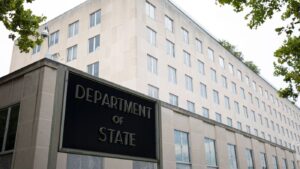sizes=”(min-width: 1350px) 953px, (min-width: 1025px) calc(100vw – 395px), (min-width: 768px) calc(100vw – 60px), calc(100vw – 30px)” class=”img” type=”image/webp” />
sizes=”(min-width: 1350px) 953px, (min-width: 1025px) calc(100vw – 395px), (min-width: 768px) calc(100vw – 60px), calc(100vw – 30px)” class=”img” type=”image/jpeg” />
 data-template=”https://npr.brightspotcdn.com/dims3/default/strip/false/crop/3500×2333+0+0/resize/{width}/quality/{quality}/format/{format}/?url=http%3A%2F%2Fnpr-brightspot.s3.amazonaws.com%2F43%2F23%2Fbd37d5e24636a4fb697f7af30f32%2Fnpr-free-speech-teacher-23.JPG” class=”img” alt=”Sarah Inama, a world civilization teacher at Lewis and Clark Middle School in Meridian.”
data-template=”https://npr.brightspotcdn.com/dims3/default/strip/false/crop/3500×2333+0+0/resize/{width}/quality/{quality}/format/{format}/?url=http%3A%2F%2Fnpr-brightspot.s3.amazonaws.com%2F43%2F23%2Fbd37d5e24636a4fb697f7af30f32%2Fnpr-free-speech-teacher-23.JPG” class=”img” alt=”Sarah Inama, a world civilization teacher at Lewis and Clark Middle School in Meridian.”fetchpriority=”high” />
Sarah Inama is a teacher in Idaho who had a poster in her classroom that said “Everyone is welcome here,” along with an image of hands with varying skin tones. The poster had not drawn attention until recently.
Kyle Green for NPR
hide caption
toggle caption
Kyle Green for NPR
In a world where classroom decorations can spark significant debates, the story of a simple poster in an Idaho classroom illustrates the evolving tensions in public education. Sarah Inama, a dedicated teacher, found herself at the center of controversy when her inclusive poster, which had been unnoticed for years, was flagged by school officials for potentially expressing a personal opinion.
The poster, displaying the words “Everyone is welcome here” in vibrant colors above a row of hands in different skin tones, was initially deemed inappropriate by school administrators. Inama was instructed to remove it due to concerns it conveyed her personal or political views. Despite her compliance, the poster was soon reinstated, leading to further discussions with the school district.
According to Inama, the district’s chief academic officer explained the situation by noting, “political environments ebb and flow,” suggesting that what was once non-controversial might now be contentious. Interestingly, this decision was made without parental complaints.
sizes=”(min-width: 1025px) 650px, calc(100vw – 30px)” class=”img” type=”image/webp” />
sizes=”(min-width: 1025px) 650px, calc(100vw – 30px)” class=”img” type=”image/jpeg” />
 data-template=”https://npr.brightspotcdn.com/dims3/default/strip/false/crop/4456×3342+0+0/resize/{width}/quality/{quality}/format/{format}/?url=http%3A%2F%2Fnpr-brightspot.s3.amazonaws.com%2Fd5%2F3%2Fe7b120874c5a9ad2885cbab12729%2Fnpr-free-speech-teacher-52-edit1.jpg” class=”img” alt=”An “Everyone is Welcome” sign hangs in Sarah Inama’s classroom.” loading=”lazy” />
data-template=”https://npr.brightspotcdn.com/dims3/default/strip/false/crop/4456×3342+0+0/resize/{width}/quality/{quality}/format/{format}/?url=http%3A%2F%2Fnpr-brightspot.s3.amazonaws.com%2Fd5%2F3%2Fe7b120874c5a9ad2885cbab12729%2Fnpr-free-speech-teacher-52-edit1.jpg” class=”img” alt=”An “Everyone is Welcome” sign hangs in Sarah Inama’s classroom.” loading=”lazy” />
An “Everyone is welcome” sign hangs in Sarah Inama’s classroom.
Sarah Inama
hide caption
toggle caption
Sarah Inama
West Ada School District officials confirmed the incident, stating that their concern was not the poster’s message but rather its design, which they felt might represent specific identity groups. Despite the ongoing presence of the poster in Inama’s classroom, the situation has left her feeling demoralized. Inama expressed her perspective by stating, “There are only two opinions of that poster: You either believe that everyone is welcome here or you don’t.”
Amidst these local debates, a broader national discussion is unfolding. Following President Trump’s return to office, he signed the “Ending Radical Indoctrination in K-12 Schooling” executive order. This directive aims to limit classroom discussions on race, gender, and “equity ideology.” The order also empowers the Education Department to withdraw federal funding from schools that do not comply.
To enforce these rules, the department introduced an End DEI portal, allowing students and parents to report diversity, equity, and inclusivity lessons. This initiative has sparked debates about free speech in public education.
“What did I say in class today?”
For teachers like E., a social studies educator in Oregon, this portal has introduced a new layer of stress. Fearful of potential reports, E. has become cautious in addressing students’ questions about current events. “There are so many times where I just have to tell them I can’t answer that question or I just change the subject,” she explained.
While some celebrate the crackdown on DEI initiatives, others worry about the chilling effect on educational discourse. The Education Department has yet to clarify how complaints will be handled, leaving many educators anxious about the implications for their teaching.
Some are celebrating the White House’s DEI purge
The End DEI portal has gained support from groups like Moms for Liberty, which argue that lessons dividing children by race are inappropriate. However, NPR found no evidence of such practices. This group, which emerged during the pandemic, has also pushed for banning books addressing racism, discrimination, and LGBTQ+ rights.
Despite controversies and accusations of extremism, Moms for Liberty continues to assert its right to free speech, framing criticism as attempts to silence parental voices. With newfound access to the White House, the group is advocating for policies that, according to some, are stifling educators’ freedom to teach.
As the educational landscape evolves, the balance between free speech and political directives remains a contentious issue, with stakeholders on all sides navigating this complex terrain.






